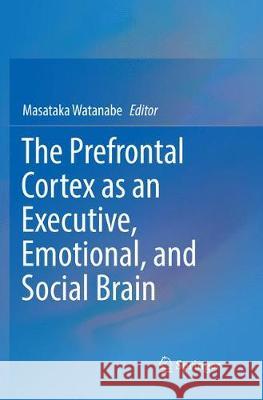The Prefrontal Cortex as an Executive, Emotional, and Social Brain » książka
topmenu
The Prefrontal Cortex as an Executive, Emotional, and Social Brain
ISBN-13: 9784431568063 / Angielski / Miękka / 2018 / 276 str.
Kategorie BISAC:
Wydawca:
Springer
Język:
Angielski
ISBN-13:
9784431568063
Rok wydania:
2018
Wydanie:
Softcover Repri
Ilość stron:
276
Waga:
0.50 kg
Wymiary:
15.5 x 23.4 x 2.2
Oprawa:
Miękka
Wolumenów:
01











